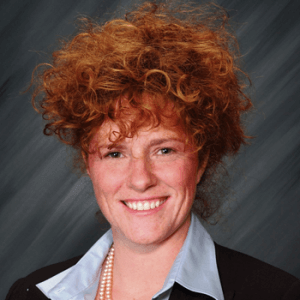
About
As a member of MWH Americas, Dr. Bell is a practicing, registered professional engineer in four states. Kati is MWH’s Water Reuse Global Practice Leader, and her primary role is thought leadership and development of applied research to identify efficient, sustainable water reuse solutions. Her extensive experience with regulatory guidance development, coordination, and negotiations along with her professional background provides the necessary skills to identify key areas of research and technology applications to meet client and regulatory goals. She has conducted selection, design and optimization of numerous treatment processes including biological treatment and nutrient removal, membrane processes, sorption and advanced oxidation for emerging contaminants, and water and wastewater disinfection. She is actively involved in applied research in water reuse with a focus on minimization of disinfection by-product formation and optimization of disinfection processes, evaluating the fate, transport and treatment of emerging pollutants, and use of UV fluorescence as a tool to aid in characterization of bulk organic matter.
In addition to serving as technical director for projects summing to over 2 billion gallons per day of treatment capacity, other project highlights of Dr. Bell’s work include her role as the project manager that guided the update of the U.S. Environmental Protection Agency 2012 Guidelines for Water Reuse. Kati is currently serving as a technical specialist providing input and review on an EPA document that will serve as a supplement to the 2012 Guidelines to address Potable Reuse – State of the Industry, which is being completed under a Cooperative Research and Development Agreement with the US EPA. Kati also recently completed a study with the City of Raleigh to investigate the fate of trace chemical constituents and microbial indicators in a river system impacted by treated wastewater that serves as a downstream drinking water source; the work led to development of legislation lifting the statewide ban on direct potable reuse and the bill was signed into law in August 2014. She is currently working with the Gwinnett County Department of Water Resources (DWR) in Georgia to explore the potential of utilizing a non-reverse osmosis treatment process for implementing direct potable reuse, allowing the DWR to explore the potential for expanding its current single option for potable water supply to over 1 million customers.
Episodes
-
December 14, 2015
Water Reuse, Potable Water Reuse
Join us in discussing water reuse, with Dr. Kati Bell from MWH Global.